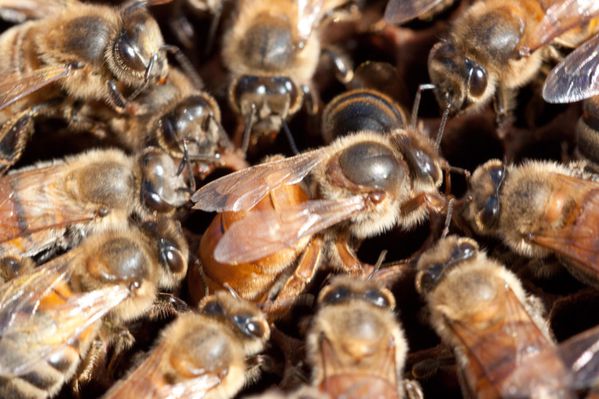The behavior of a queen bee in terms of egg-laying can vary depending on several factors, including the specific conditions of the colony and the natural rhythms of the bee’s reproductive cycle. However, there are a few general patterns that can help explain why a queen bee may reduce or stop egg-laying during the summer and then resume later.
- Seasonal Cycles: Bees, including the queen, have evolved to adjust their behavior in response to seasonal changes. During the summer months, when environmental conditions are generally favorable and resources are abundant, the colony tends to expand rapidly. This may result in a surplus of worker bees, leading the queen to decrease or temporarily halt her egg-laying activity. On the other hand, if the weather is too hot and dry, as in California, nectar and pollen resources will be greatly reduced, and the queen will reduce or even stop her egg-laying.
- Colony Size and Resource Availability: The size of the bee colony and the availability of resources, such as nectar and pollen, play a significant role in the queen’s egg-laying behavior. If the colony becomes too crowded, the queen may reduce her egg-laying to prevent overcrowding and maintain optimal conditions within the hive. This process is known as the “regulation of colony population.”
- Swarming: Swarming is a natural reproductive behavior of honeybee colonies. When a colony becomes too large or conditions are suitable, the queen and a portion of the worker bees leave the hive to establish a new colony. In preparation for swarming, the queen may temporarily reduce or cease egg-laying until the swarm departs. Once the swarm has left, the original colony will raise a new queen from the existing brood or wait for a new queen to be introduced, and then the egg-laying will resume.
- Physiological Factors: The queen’s egg-laying capacity may also be influenced by her physiological state. Queen bees have a limited sperm supply stored in their spermatheca, and once this supply is depleted, they can only lay drones.

